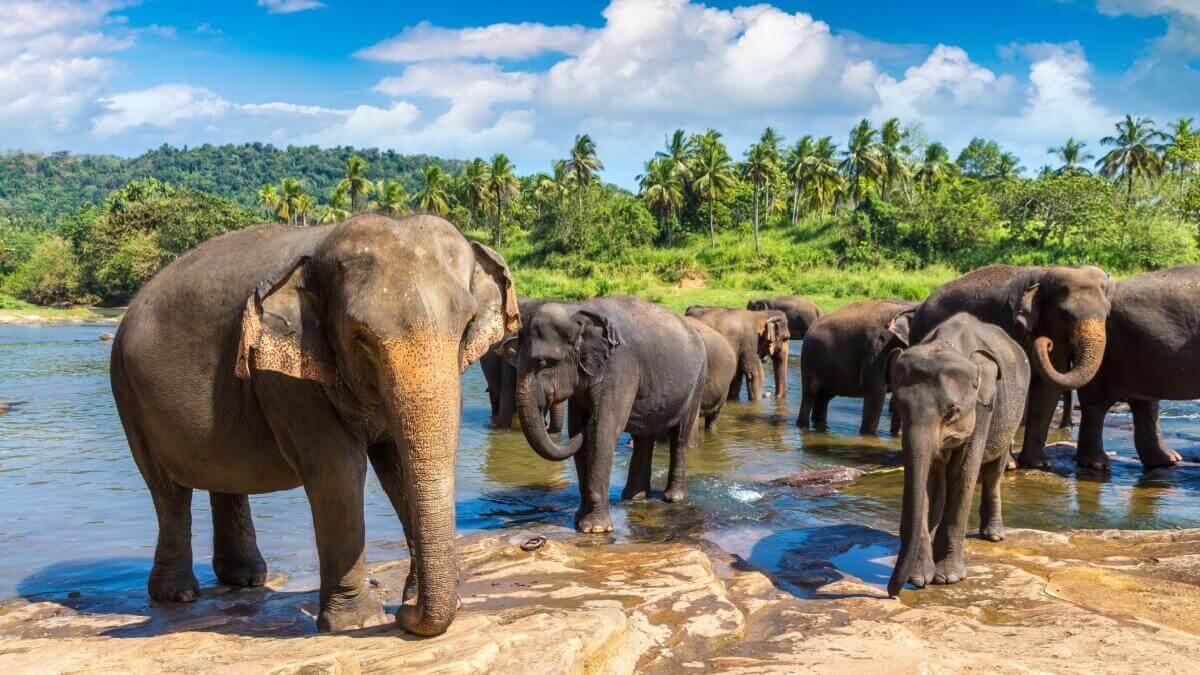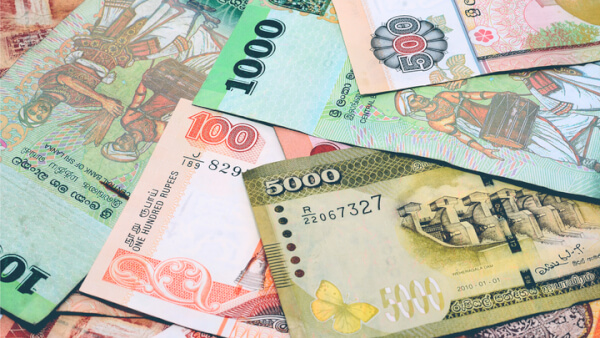Cash or card in Sri Lanka: Which is the best way to pay?
Should you pay with cash or card in Sri Lanka? A handy guide including cash etiquette, Sri Lankan ATMs and using your UK card.

Sri Lanka has fabulous beaches, jaw-dropping wildlife, and friendly people - making it a popular destination, year round, from the UK. If you’re off to Sri Lanka make sure you stay safe, fit and healthy, with this guide to the most important and commonly recommended travel vaccinations.
Got a trip to Sri Lanka coming up soon? Why not get the Wise international debit card to make spending and withdrawals easier and cheaper once you arrive. Order your Wise card now, add money in GBP, and let the card convert to LKR with the mid-market rate and low, transparent fees1 when you spend.
Please see the Terms of Use for your region or visit Wise fees & pricing for the most up-to-date information on pricing and fees.
Find out more about the Wise card 💳
Travel health is important - and a big part of that is getting your vaccinations up to date before you leave. Failing to do so can mean your holiday is ruined by illness.
This guide walks through the Sri Lanka travel vaccinations which are usually recommended or required - and you can also learn lots more with NHS resources such as the Fit for Travel site2.
There’s no legal requirement now to show proof of covid vaccination to enter Sri Lanka3. In effect this means that - aside from yellow fever rules4, which we’ll cover next - there are no compulsory vaccinations for Sri Lanka, but there are several that are strongly recommended to all travellers, and some which are optional based on specific need.
Join us as we look into common Sri Lanka vaccination requirements - and where to learn more.
If you’re travelling from or transiting through a country where there’s a risk of yellow fever, you’ll need to show a yellow fever vaccination certificate to enter Sri Lanka. These countries are primarily in Africa, Central and South America. If you’re on a multi-stop trip, or transiting through any affected country, check the details well in advance.
Before you travel to Sri Lanka you’re advised to visit a travel health specialist or doctor. This should be done around 4 weeks before travel if at all possible, to allow time for any boosters or shots to be administered and take effect.
There are some vaccinations which are recommended for all travellers - which we’ll run through here. Some other vaccinations are advised based on individual circumstances - including your own state of health, any underlying conditions, what you plan to do when you’re in Sri Lanka and how long you’ll stay for. This means that a conversation with a specialist can be very helpful, to pick out the most important vaccinations in your own unique case.
Let’s start with some of the required vaccinations for all travellers to Sri Lanka:
Before you travel you should check you’re up to date with all primary courses and boosters you’d need for day to day life in the UK. This can include covid vaccinations, MMR, seasonal flu vaccinations and similar. Many of these vaccinations are given when we’re babies - but some are offered to older people or vulnerable groups.
You can learn more about the standard vaccination schedule on the NHS website5 - or ask your GP for advice.
Getting a tetanus booster is usually recommended for any traveller to Sri Lanka. Boosters are needed every 10 years, and this can be particularly important if you’ll be travelling in rural areas where access to medical help may be more limited compared to in the UK. Tetanus is caused by a bacteria which lives in soil and can be transmitted through even small cuts, scratches or burns - so even an insignificant injury can turn nasty if you’re not up to date with your vaccines.
Some other vaccinations which may be suggested to travellers, depending on their existing vaccination coverage and their plans in Sri Lanka include:
Hepatitis A is passed on through contaminated food or water, or by being in contact with someone else who has been exposed to it. Hepatitis A may be recommended as a vaccination if you’ll be staying in rural areas, undertaking more adventurous travel which may mean being a distance from hospitals, or based on your specific circumstances.
Hepatitis B is passed on through bodily fluids, and relatively commonly found in Sri Lanka. For this reason, this may be recommended if you’re staying for a long time in the country, or if your lifestyle or planned activities may put you at increased risk.
Rabies is passed on through contact with infected animals. It is almost always fatal. While vaccination doesn’t provide full immunity, it does buy you time to seek additional medical care if you’re bitten, scratched or otherwise in contact with an infected animal. This is recommended to long stay travellers, people working with animals and anyone else who may be in contact with the disease.
Typhoid is passed on through infected food and water. This vaccination is not usually necessary if you’re travelling somewhere that food safety can be reasonably guaranteed - but it may be a good choice if your specific plans put you at risk.
Japanese encephalitis (JE) is passed on through mosquito bites, and can be a year round problem in some parts of Sri Lanka. Getting a JE shot is recommended if you’ll be in rural, swampy or muddy areas, or if you’re staying for more than a month.
Don’t let illness ruin your trip - here are a few common sense health tips to make sure your holiday is memorable for all the right reasons:
Sri Lanka is a fascinating tourist destination, with amazing wildlife, history and culture, friendly people and great food. Use this guide to make sure you travel safely - and consider ordering your Wise international debit card today for a one-time fee of £7.
With Wise you can hold and exchange 40+ currencies and spend with your card in 150+ countries. Your pounds are converted to Sri Lankan rupees with the mid-market rate and low transparent fees - plus you’ll be able to make 2 ATM withdrawals to the value of 200 GBP each month for free before any costs kick in. Spend securely, withdraw cash when you need it - and get great rates and low fees every time.
Sources used for this article:
Sources last checked on date: 24-May-2024
*Please see terms of use and product availability for your region or visit Wise fees and pricing for the most up to date pricing and fee information.
This publication is provided for general information purposes and does not constitute legal, tax or other professional advice from Wise Payments Limited or its subsidiaries and its affiliates, and it is not intended as a substitute for obtaining advice from a financial advisor or any other professional.
We make no representations, warranties or guarantees, whether expressed or implied, that the content in the publication is accurate, complete or up to date.

Should you pay with cash or card in Sri Lanka? A handy guide including cash etiquette, Sri Lankan ATMs and using your UK card.

Check out our in-depth guide on everything you need to know about buying a prepaid Sri Lanka SIM card, including different providers, pricing, and features.

Whether you’re after an outdoor adventure or total relaxation, a trip to Sri Lanka is a great choice. Located just off the southeastern tip of India, it’s a...